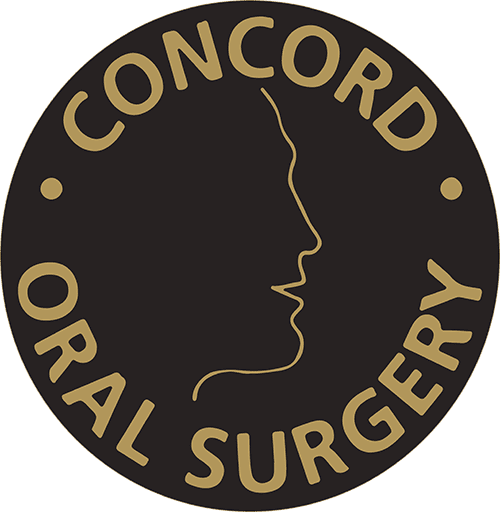Reviewed By Dr. Robert Barron, DMD
Reading Time: 4 minutes
Patients often wonder how dental implants hold up decades later. Are they still strong after 10, 15, or even 20 years? Knowing how both the implant post and the restoration age over time can help set realistic expectations.
Table of Contents
Key Takeaway
Dental implants can last a lifetime when cared for properly. The titanium post is permanent, while the crown or denture may need replacement after 10–15 years. Daily oral hygiene, routine dental checkups, and healthy habits are the keys to keeping your implants strong year after year.
Lifespan of Dental Implants
A dental implant is made up of two parts, the implant post and the restoration. The implant post is a titanium screw placed in the jawbone, where it fuses with the bone through a process called osseointegration.
Because titanium is biocompatible and resistant to decay, the post is designed to remain stable for decades and can last a lifetime. Its long-term success depends on the health of the surrounding bone and gums, as well as consistent oral hygiene to prevent infection or bone loss over time.
Lifespan of the Restoration
The restoration that attaches to the implant—whether a crown, bridge, or denture—does not last as long as the post itself. Since it is exposed to daily chewing and biting forces, it typically lasts 10 to 15 years before needing replacement or repair. With excellent care and regular dental visits, some restorations may last longer, but eventual wear is expected.
The important distinction is that the implant post is built to be permanent, while the restoration may need updates. When a crown or denture wears down, it can be replaced without disturbing the implant itself, allowing your smile to stay strong and functional for decades.
| 💡 Implants Need the Same Care as Natural Teeth Just like natural teeth, implants can fail if they are not cared for properly. Without daily brushing, flossing, and regular checkups, gum disease and bone loss can develop around the implant. While the titanium post will not decay like a tooth, the surrounding tissues are still vulnerable, and protecting them is the key to keeping your implant healthy for life. |
Factors That Influence Implant Longevity
The long-term success of dental implants depends on how well they heal, how much stress they are exposed to, and how healthy the surrounding tissues remain. These factors play a key role:
- Oral hygiene: Plaque and bacteria can cause gum disease and bone loss around the implant. Daily brushing, flossing, and professional cleanings reduce this risk and help protect the supporting structures.
- Smoking: Nicotine reduces blood flow and slows the body’s healing process. This makes it harder for the implant to integrate with bone and increases the chance of long-term complications.
- Medical conditions: Health issues such as diabetes, osteoporosis, or autoimmune disorders can affect bone density, healing ability, and the body’s response to inflammation, all of which impact implant stability.
- Dental checkups: Regular visits give your dentist the chance to monitor bone levels, check the health of your gums, and catch small issues before they threaten the implant.
- Bite forces and teeth grinding: Excessive pressure from clenching or grinding can wear down restorations or loosen supporting bone. A night guard may be recommended to protect implants if you grind your teeth.
Why Expert Care Matters
The lifespan of a dental implant depends as much on surgical skill as on daily care. If an implant is poorly positioned or placed into inadequate or weak bone, it may fail early. Choosing an experienced oral surgeon is the best way to protect your results.
At Concord Oral Surgery, Dr. Robert Barron uses advanced 3D imaging and guided techniques to place implants with accuracy. This precision helps ensure secure integration with the jawbone and gives your implants the best chance to last a lifetime.
Book a Dental Implant Consultation in Vaughan
Ready to invest in a solution that lasts? Schedule a consultation at Concord Oral Surgery in Vaughan to learn how dental implants can give you stable, natural-looking results for decades.
To book a dental implant consultation at our oral surgery office in Vaughan, ON, call (905) 669-2616. We are located at 3300 Highway 7 West, Suite 805 Vaughan, ON.
FAQs
What foods can you eat with a dental implant?
Once your implant has fully healed, you can eat most of the same foods you would with natural teeth. Implants provide stability for biting and chewing, so you can enjoy meats, vegetables, fruits, and even crunchy foods. Right after surgery, you will need to stick to softer foods until your implant integrates with the bone and your surgeon clears you for a normal diet.
How do you clean dental implants?
Dental implants are cleaned much like natural teeth. Brush twice a day with a soft-bristled toothbrush, floss daily, and use any special tools your dentist recommends, such as an interdental brush or water flosser, to clean around the implant. Regular professional cleanings are also important to prevent gum disease and bone loss around the implant.
Is there a dental implant specialist near me?08
If you are in Vaughan or the Greater Toronto Area, you can see Dr. Robert Barron at Concord Oral Surgery for expert implant care. A consultation will give you a clear treatment plan and help you understand the expected results.

